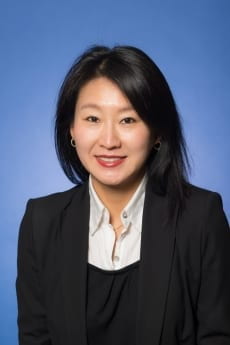
The GW Institute for Korean Studies & Women’s, Gender, and Sexuality Studies Program Present:
Lecture Series
“Baby Miles”: Reproductive Rights, Labor, and Ethics
in the Transnational Korean Reproductive Technology Industry
Speaker
Sunhye Kim, Assistant Research Professor of International Affairs and Postdoctoral Fellow, GW Institute for Korean Studies
Moderator
Jisoo M. Kim, Director, GW Institute for Korean Studies
Date & Time
Wednesday, January 20, 2020
2:00 pm – 4:00 pm
Location
Room 505, Elliott School of International Affairs,
the George Washington University, 1957 E Street, NW, Washington, DC 20052
Event Description
This research project examines the transnational circuits of the assisted reproductive technology (ART) industry in South Korea to demonstrate how the concepts of reproductive rights and labor have been contested, negotiated, and reconstructed by various actors—including infertile couples, gamete donors, gestational surrogates, state agents, and medical professionals—across national boundaries. This study envisions reproductive ethics as part of a transnational feminist agenda by examining the ethical issues raised by the complicated relationships between intended parents and gamete donors/gestational surrogates. Drawing on three years of multi-sited ethnographic research conducted in South Korea, Taiwan, Thailand, and Ukraine, this project disputes the unilateral understanding of ART, which is typically conceptualized as having a unidirectional flow from the “West” to Asia, by focusing on the complex relations between Korean intended parents and non-Korean gamete providers and gestational surrogates.
Speaker

Sunhye Kim is Assistant Research Professor of International Affairs and Postdoctoral Fellow at the Institute for Korean Studies at GW. Her research and teaching focus on the politics of human (re)production, technology and gender, family and labor, cross-border medical tourism, and qualitative methods. She is also interested in Korean women’s movements and transnational feminism. She has published several journal articles and book chapters in English and Korean related to population policy, biomedical technology, and reproductive justice movement in English and Korean. She received her Ph.D. in the Department of Women’s Studies at the University of Maryland and earned her M.A. and B.A. in the Department of Sociology at Yonsei University. She is currently working on a book manuscript that examines how the concepts of reproductive rights and labor have been contested and negotiated by various actors—including infertile couples, gamete donors/gestational surrogates, state agents, and medical professionals—across national boundaries.
Moderator

Jisoo M. Kim is Korea Foundation Associate Professor of History, International Affairs, and East Asian Languages and Literatures and Director of the Institute for Korean Studies at GW. She received her Ph.D. in Korean History from Columbia University. She is a specialist in gender and legal history of early modern Korea. Her broader research interests include gender and sexuality, crime and justice, forensic medicine, literary representations of the law, history of emotions, vernacular, and gender writing. She is the author of The Emotions of Justice: Gender, Status, and Legal Performance in Chosŏn Korea (University of Washington Press, 2015), which was awarded the 2017 James Palais Prize of the Association for Asian Studies. She is also the co-editor of The Great East Asian War and the Birth of the Korean Nation by JaHyun Kim Haboush (Columbia University Press, 2016). She is currently working on two book projects titled Suspicious Deaths: Forensic Medicine, Dead Bodies, and Criminal Justice in Chosŏn Korea and Sexual Desire and Gendered Subjects: Decriminalization of Adultery Law in Korean History.
This event is open to public and on the record.

